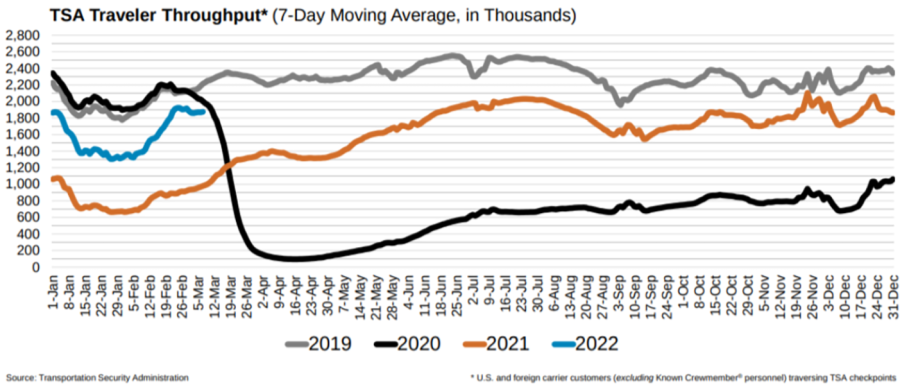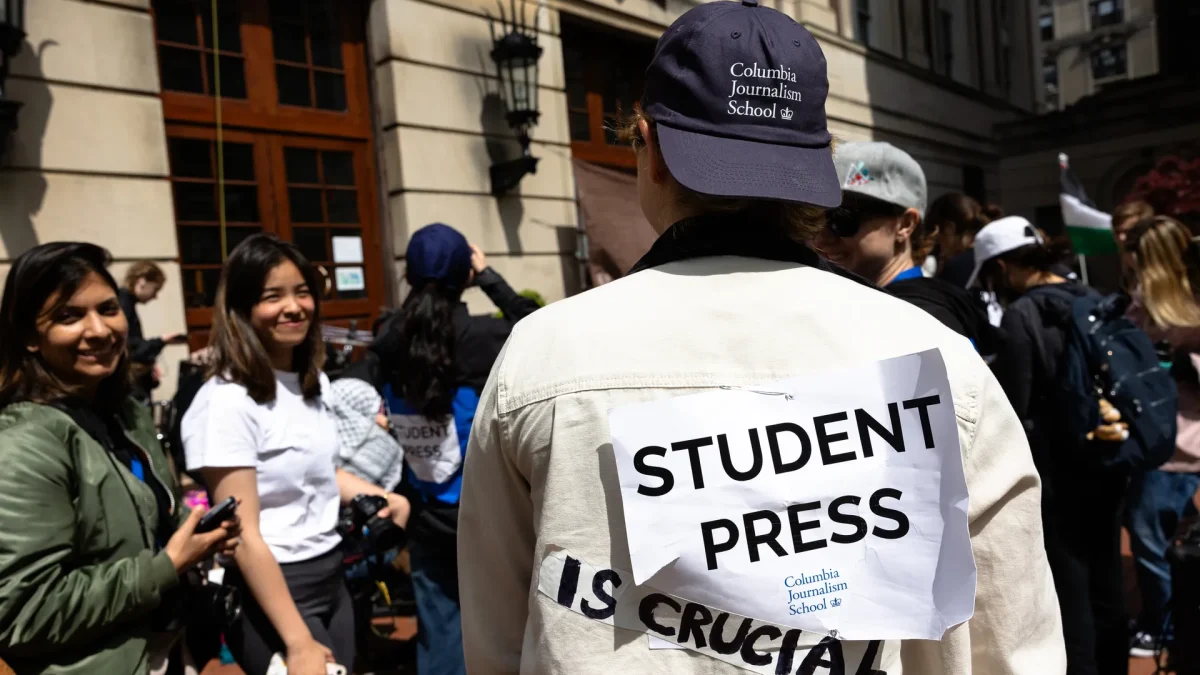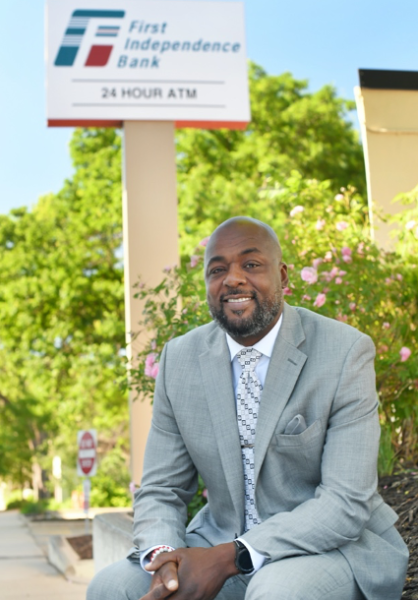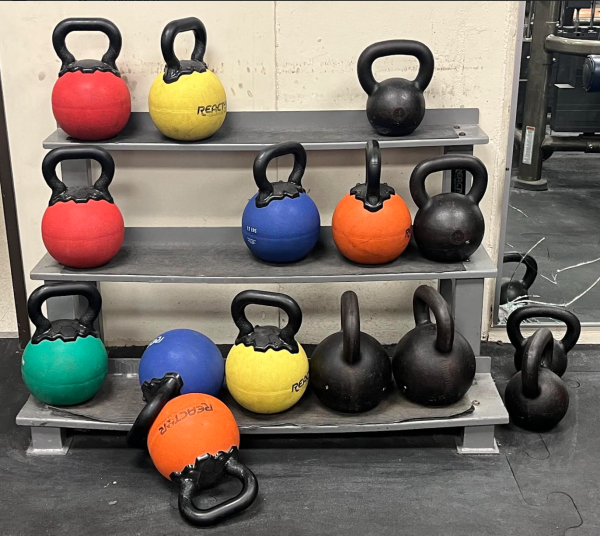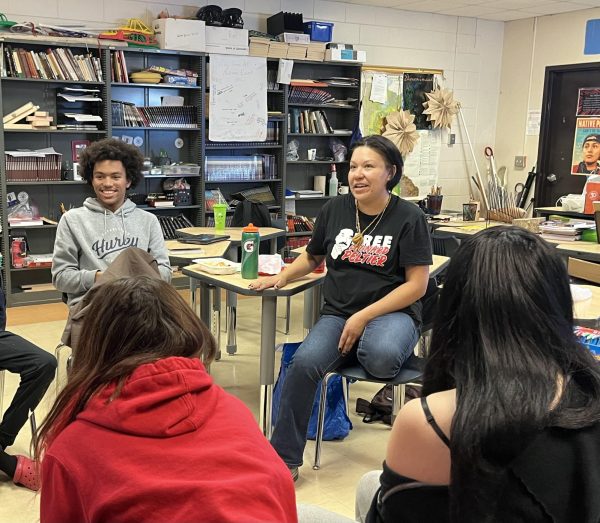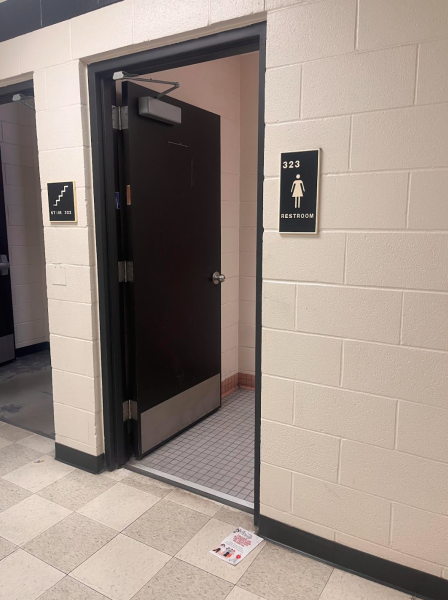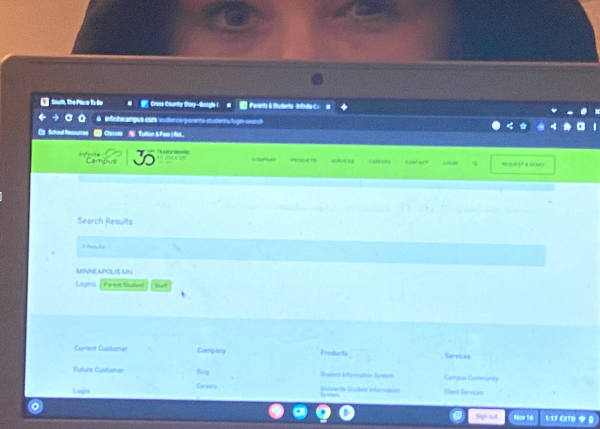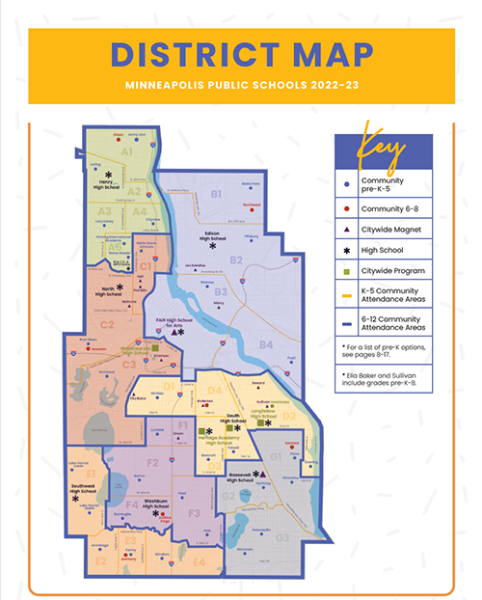Covid’s effect on travel
Transportation Security Administration
A graph demonstrating the amount of people to pass through Transportation Security Administration (TSA) gates.
April 12, 2022
Over the summer, I flew with my family to visit my cousins in Florida. The initial plan was a flight from Minneapolis to Atlanta, followed by a flight from Atlanta to Melbourne, followed by a return trip of the same form a week after. What instead happened was both the outgoing and incoming flights from Atlanta to Melbourne were cancelled, and we had to come out of Orlando instead. The initial cancellation of the outgoing flight happened while we were boarding the one from Minneapolis to Atlanta, which resulted in a brief hectic overnight stay at a Delta hotel followed by a 7:30 a.m. flight to Orlando the following morning.
I wondered if Covid was responsible for all of it, and it seems my guess was correct. According to the graph, the Transportation Security Administration is still seeing far fewer people pass through their checkpoints as a consequence of the humongous drop in travel that occurred at the beginning of the pandemic in March of 2020. This generally means that at least in the US, there are a lot fewer people taking flights than is usually the case, as any person taking a commercial flight has to pass through a TSA checkpoint. This made me wonder if anyone else had experienced issues with flying.
It turns out that people had. While social studies teacher Macy Ashby has not travelled during this school year, she did fly over the summer. From her experiences, things were mostly the same, but there were a few major changes. “It was sort of interesting… Me and my friend went to Croatia, but she was supposed to be taking a different trip which got cancelled because of Covid,” she said. She explained how, also due to Covid, the tourist numbers were unusually low. “When we first booked the flight, Delta cancelled and rescheduled and cancelled and rescheduled… It took so long to actually secure a flight to Croatia because Covid forced them to keep moving stuff around.”
Ashby had plans to fly to Ireland in March, as well as plans to take some South students to Washington DC in April. Ireland lifted most of its Covid restrictions a long time ago due to its extremely high vaccination rate, but details are still fuzzy about the DC trip. “I doubt this will simmer down until Covid lets up a little,” she said. “There are so many things that can go wrong in travel, and Covid can cause a lot of them. A person could get Covid and then not be able to fly… Worse, a pilot or flight attendant could get Covid and a flight could be cancelled. A flight could also be cancelled if not enough non-Covid infected people are on it… it’s complicated.”
Delania Haug, an English teacher and travel coordinator at South, also took a trip to Croatia last summer during a minuscule window before the Delta variant hit. This was after most people in Europe were vaccinated and it was declared safe to fly to. In this small window of time not many other people were traveling, which in her opinion made the trip a lot better. She touched on how she had had a trip planned with 12 students to Ecuador in the spring of 2020, as well as another planned to take 22 students to Japan in the spring of 2021, both of which were cancelled and postponed due to falling in the heart of the Covid pandemic. “We’re trying [to] do both the Ecuador and Japan trips later this summer, which might be kind of a lot,” she said. “We’re still obviously waiting to see what’ll happen in the world, because as we know with Covid, things often seem like they’re getting better and then they suddenly turn for the worse, but then they get better again. We’re really hoping that things start to improve this spring; it already seems like it’ll be more likely that we can do these trips in that time.”
Haug did say, though, that the cancellations were pretty rough; “kids had paid for their trips, had their passports ready. We still have an agenda of everywhere we want to visit in Ecuador, including the Galapagos Islands,” she said. However, when Covid struck, Ecuador was hit very hard, and the company they would have flown with said they would not be doing any commercial flights for a full year in order to make sure everyone stayed safe. A similar decision was made with the Japan trip the following year; after the pushback of the Olympics it was decided unsafe to travel there. The result was disappointing to many kids who would have gone on these trips had they not been cancelled. “Some students even graduated,” she mentioned, “so they are simply gone now. They were planning to travel with us to one of these places but will now never be able to see those plans realized.”
Travel is one of the most severe cases of a long list of things the pandemic has strongly diminished, but we can all hope that it shouldn’t take too long to return to normal.

